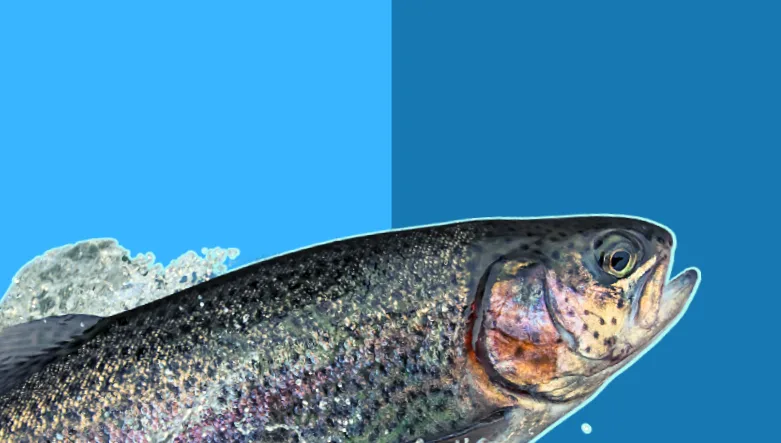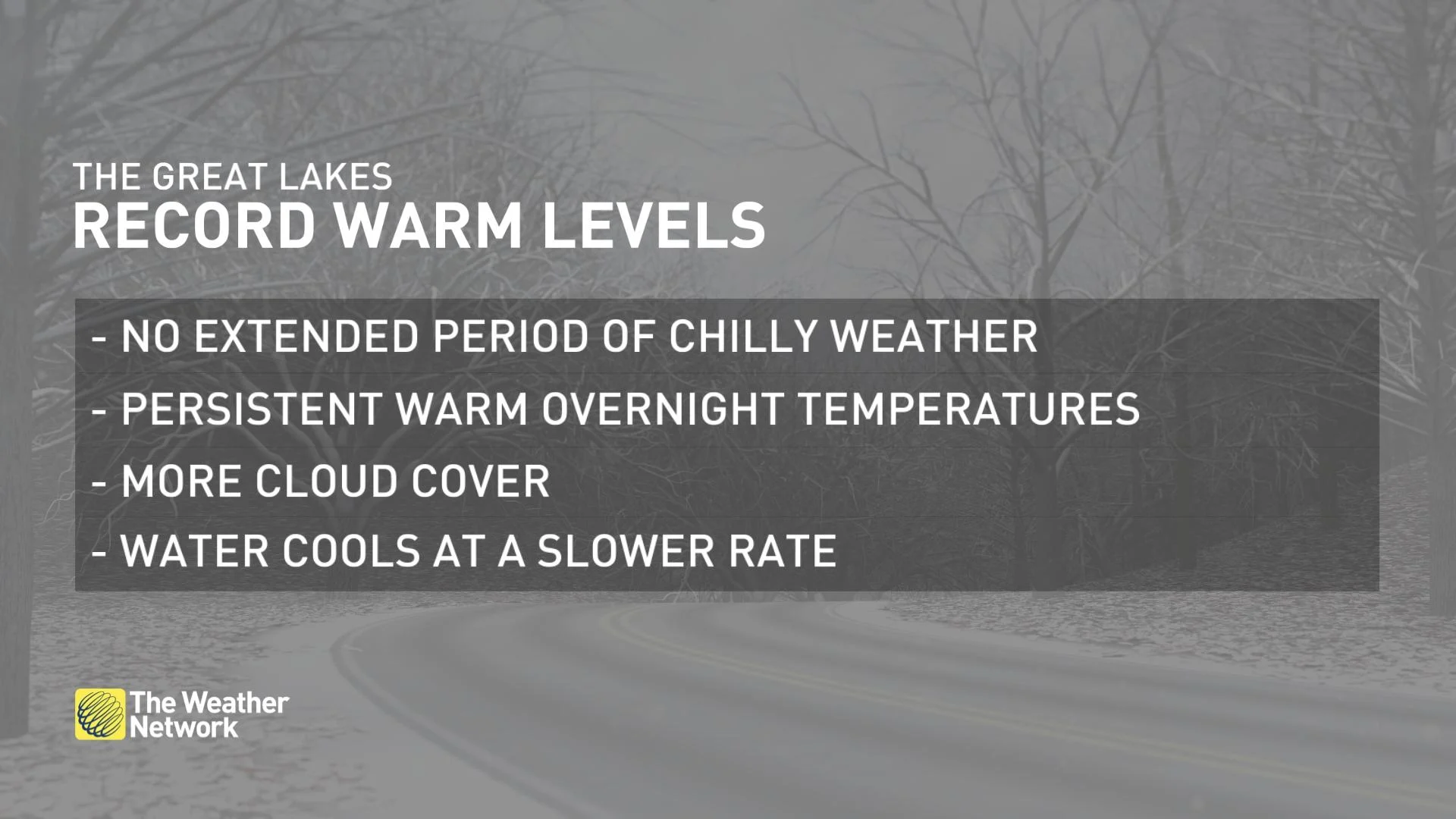
Record warmth in Great Lakes could be disruptive for marine life
It's not yet clear how the warm trend will impact marine life in the Great Lakes, if at all, but experts say the potential is there.
Record warmth has seized the Great Lakes following a prolonged period of above-seasonal temperatures.
The conditions are creating the perfect environment for lake effect snow, with the potential to disrupt fish spawning, phys.org reports.
"We have seen very little in terms of extended periods of chilly weather," explains Weather Network meteorologist Jessie Uppal, referencing the conditions in Ontario, "as well as persistently warm overnight temperatures keeping conditions warm, along with more cloud cover to trap in heat."

The respective temperatures in all of the Great Lakes have been a few degrees above seasonal since early October, according to data from the National Oceanic and Atmospheric Administration (NOAA). That's enough to potentially harm ecosystems, Andrea Vander Woude, manager of NOAA's Great Lakes Environmental Research Laboratory's CoastWatch program, told phys.org.
"It could have a negative impact on ecosystems, on fish, on zooplankton and phytoplankton, and the whole dynamics of small animals within the lakes," Vander Woude added.
The jury is still out on how marine life will be impacted by the warming trend, if at all. But researchers know that some of the fish that live in the lakes - like trout - are sensitive to fluctuations, spawning when water temperatures cool down. A delay in spawning could reduce the number of eggs laid, and that could have a cascading effect on the entire ecosystem.
The Great Lakes is the largest freshwater ecosystem in the world, and its basin is home to some 3,500 animal species. In addition to 170 species of fish, phytoplankton, zooplankton, and other marine life, the lakes serve as an important food and water resource for countless animals, including migratory birds, lynx, and gray wolves.
Thumbnail created by Cheryl Santa Maria. Fish image: FedBul/Getty Image Pro.






